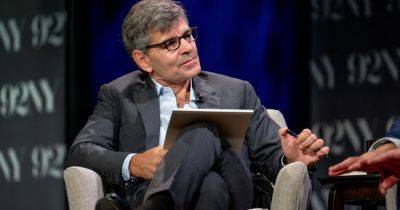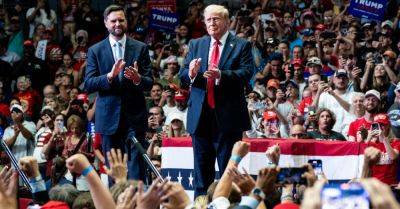Trump’s Proposed Tax Cuts and Increased Tariffs Could Hurt Poorer Households
When former President Donald J. Trump met with House Republicans last month, he touched on a mix of policies core to his economic agenda: cutting income taxes while also significantly raising tariffs on foreign goods.
Mr. Trump told Republicans he would “love to raise tariffs” and cut income taxes on Americans, potentially to zero, said Representative Marjorie Taylor Greene, Republican of Georgia.
“Everyone was clapping in the room,” Ms. Greene said. “He said, ‘If you guys are going to go vote on something today, vote to lower taxes on Americans.’”
Tariffs and tax cuts were core to Mr. Trump’s economic thinking while he was in the White House. If he wins in November, he is promising a much more aggressive approach, including potentially a blanket 10 percent tariff on nearly all imports and a 60 percent tax on Chinese goods.
Mr. Trump and his supporters say that mixing tariffs with tax cuts will revitalize American businesses and manufacturing, boosting jobs and benefiting working-class Americans. And they see tariffs on foreign products as a lucrative source of revenue, one that could be used to offset a drop in tax receipts.
Some economists have a different view, saying that cutting taxes while raising tariffs could have harmful consequences by widening the gap between the rich and the poor. Companies often pass on the cost of tariffs to consumers in the form of higher prices. As a result, economists say, lower-income households would be hit hardest by tariffs since they spend a greater share of their income on goods. Income taxes tend to fall more heavily on wealthier Americans since many low-income workers do not make enough money to owe federal income taxes.







